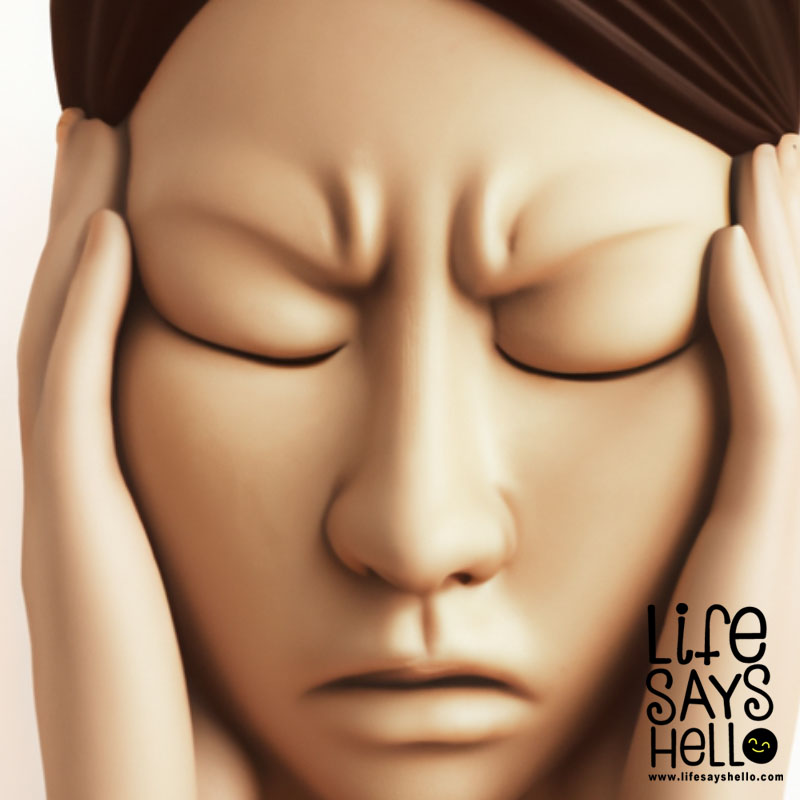Why Have I Had a Headache for 3 Days? Discover the Causes and Effective Solutions for Persistent Headaches

Are you wondering, "Why have I had a headache for 3 days?" Persistent headaches can be frustrating and downright debilitating. In this comprehensive guide, we'll uncover the possible causes behind your headache and provide you with practical solutions to help you find relief and prevent future occurrences.
Why Have I Had a Headache for 3 Days? Uncovering the Possible Causes and Solutions
1. Introduction
Headaches are a common ailment that most people experience at some point in their lives. However, when a headache persists for several days, it can become a cause for concern. Understanding the potential reasons behind a persistent headache is essential in finding the right solution and getting back to your daily routine. In this article, we'll explore the common causes of a headache lasting for three days, discuss serious underlying conditions that may be at play, and provide home remedies, lifestyle changes, and medical treatments that can help alleviate your headache and prevent future occurrences.
2. Common Causes of Persistent Headaches
There are several factors that can contribute to a headache lasting for three days or more. Here are some of the most common causes:
Dehydration
Inadequate fluid intake can lead to dehydration, which in turn can cause headaches. When your body is dehydrated, it can cause blood vessels to narrow, reducing the flow of oxygen and nutrients to the brain and triggering a headache.
Sleep Deprivation
Lack of proper sleep can also lead to headaches. Sleep is essential for the body's overall health and well-being, and not getting enough rest can result in tension headaches or exacerbate existing ones.
Stress and Tension
Stress is a common trigger for headaches. When you're under stress, your body releases chemicals that can cause inflammation and tension in the muscles of your head, neck, and shoulders, leading to a headache.
Eye Strain
Spending long hours in front of a computer or other digital screens can cause eye strain, which can lead to headaches. The blue light emitted by screens can also disrupt your sleep, further contributing to headache symptoms.
Sinus Issues
Sinus infections or inflammation can lead to pressure and pain in the forehead, cheeks, and behind the eyes, resulting in a sinus headache.
Caffeine Withdrawal
If you're a regular coffee or tea drinker and suddenly cut back on your caffeine intake, you may experience withdrawal symptoms, including headaches.
Hormonal Changes
Hormonal fluctuations during menstruation, pregnancy, or menopause can trigger headaches in some women.
Medication Overuse
Overusing over-the-counter pain relievers, such as ibuprofen or aspirin, can lead to a condition called medication overuse headache (MOH). This type of headache occurs when your body becomes accustomed to the medication, and stopping its use can trigger a headache.
3. Serious Underlying Conditions
While most headaches are not a cause for alarm, persistent headaches can sometimes signal more serious health issues. It's essential to be aware of these conditions and know when to seek medical attention:
Migraines
Migraines are a type of headache characterized by severe, throbbing pain on one side of the head, often accompanied by nausea, vomiting, and sensitivity to light and sound. If your headache has lasted for three days and exhibits these symptoms, you may be experiencing a migraine.
Cluster Headaches
Cluster headaches are a rare but severe form of headache that occurs in clusters or cycles. They're characterized by sudden, intense pain around one eye or temple, often accompanied by tearing, redness, or swelling on the affected side of the face. If your headache has lasted for three days and exhibits these symptoms, you may be experiencing a cluster headache.
Temporomandibular Joint (TMJ) Disorders
TMJ disorders occur when the temporomandibular joint, which connects your jaw to your skull, becomes inflamed or misaligned. This can cause headaches, jaw pain, and difficulty chewing.
Brain Tumor or Aneurysm
While rare, a persistent headache could be a symptom of a brain tumor or aneurysm. If your headache is accompanied by other neurological symptoms, such as weakness, numbness, or changes in vision, it's essential to seek medical attention immediately.
Infections
Infections, such as meningitis or encephalitis, can cause headaches that last for several days. These infections can be life-threatening and require immediate medical attention.
High Blood Pressure
Untreated high blood pressure can lead to headaches, as well as other serious health complications. If you have a history of high blood pressure and are experiencing a persistent headache, it's essential to consult with your healthcare provider.
It's crucial to seek medical attention if your headache is accompanied by any of the following symptoms:
- Sudden, severe headache with no apparent cause
- Headache accompanied by fever, stiff neck, or rash
- Headache following a head injury
- Headache accompanied by weakness, numbness, or difficulty speaking
- Changes in vision or loss of consciousness
4. Home Remedies and Lifestyle Changes
There are several home remedies and lifestyle changes that can help alleviate headache symptoms and prevent future occurrences:
Staying Hydrated
Drink plenty of water throughout the day to stay hydrated and help prevent headaches caused by dehydration.
Prioritizing Sleep
Ensure you're getting enough sleep each night and maintain a consistent sleep schedule to help prevent headaches related to sleep deprivation.
Practicing Stress-Management Techniques
Incorporate stress-management techniques into your daily routine, such as meditation, deep breathing exercises, or regular physical activity, to help prevent tension headaches.
Taking Regular Breaks from Screens
Take regular breaks from screens to help prevent eye strain and related headaches. Adjust your screen brightness and consider using blue light-blocking glasses to further reduce eye strain.
Using Over-the-Counter Pain Relievers Responsibly
While over-the-counter pain relievers can provide temporary relief from headache symptoms, it's essential to use them responsibly to avoid medication overuse headaches. Follow the recommended dosages and consult with your healthcare provider if you find yourself relying on these medications frequently.
Monitoring Caffeine Intake
If you're a regular caffeine consumer, gradually reduce your intake to avoid withdrawal symptoms, including headaches.
Maintaining a Balanced Diet
Eat a balanced diet rich in fruits, vegetables, whole grains, lean proteins, and healthy fats to ensure your body is receiving the nutrients it needs to function optimally and prevent headaches.
5. Medical Treatments
If your headache persists or worsens despite trying the suggested remedies and lifestyle changes, it's essential to consult with a healthcare professional. They may recommend one or more of the following medical treatments:
Prescription Medications
Your healthcare provider may prescribe medication to help manage your headache symptoms, such as triptans for migraines or anti-inflammatory medications for tension headaches.
Physical Therapy
Physical therapy can help address any underlying musculoskeletal issues that may be contributing to your headache, such as poor posture or muscle imbalances.
Biofeedback
Biofeedback is a technique that teaches you to control your body's physiological responses, such as heart rate and muscle tension, to help manage headache symptoms.
Acupuncture
Acupuncture, an ancient Chinese medicine technique, involves inserting thin needles into specific points on the body to help alleviate headache symptoms.
Botox Injections
For individuals with chronic migraines, Botox injections can help reduce the frequency and severity of migraine attacks.
Conclusion
Persistent headaches can be frustrating and disruptive to your daily life. By understanding the potential causes and implementing the suggested remedies and lifestyle changes, you can take control of your headache symptoms and improve your overall well-being. Remember to consult with a healthcare professional if your headache persists or worsens, as they can provide guidance on the appropriate medical treatments for your specific situation.




Comments